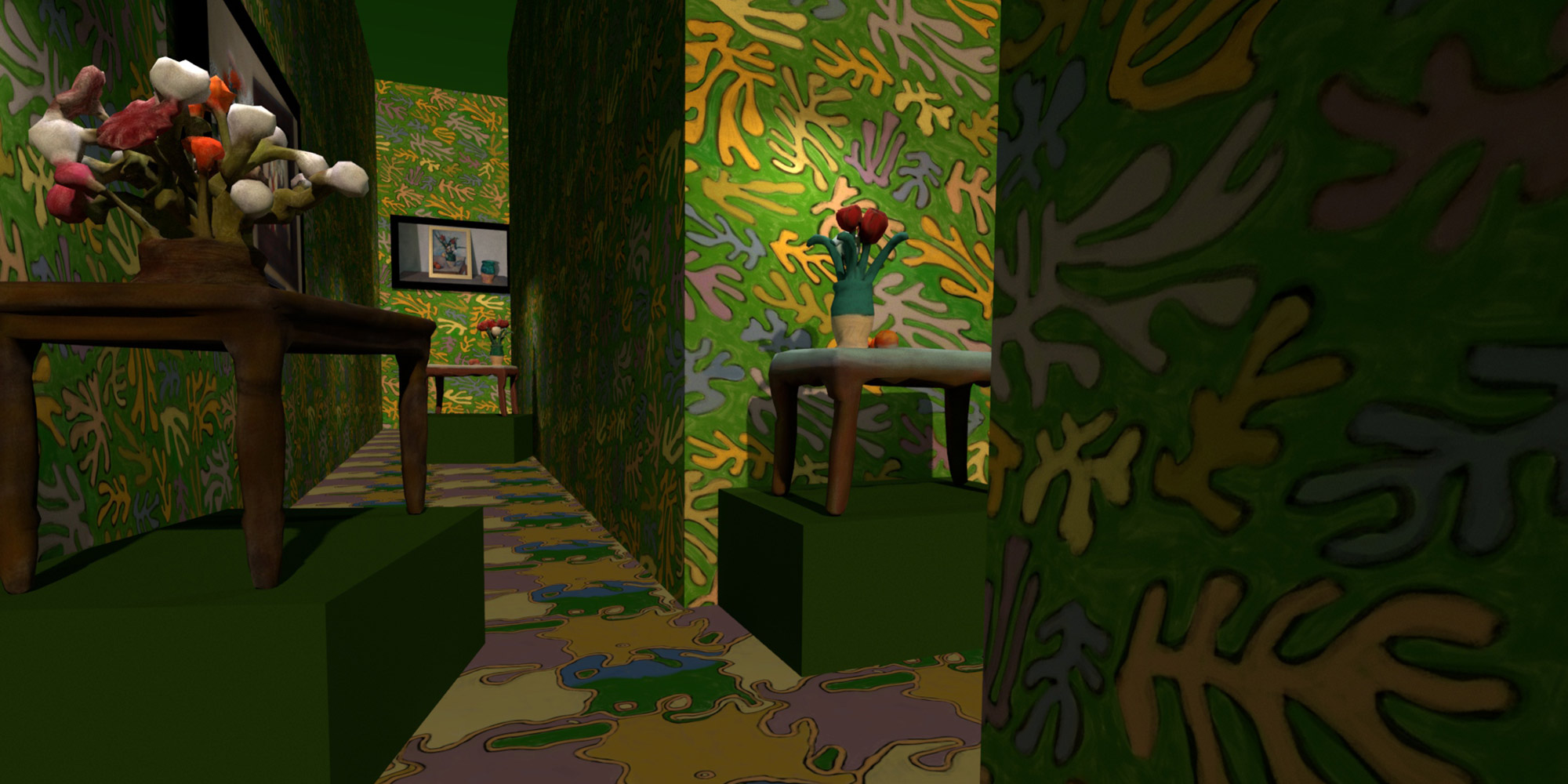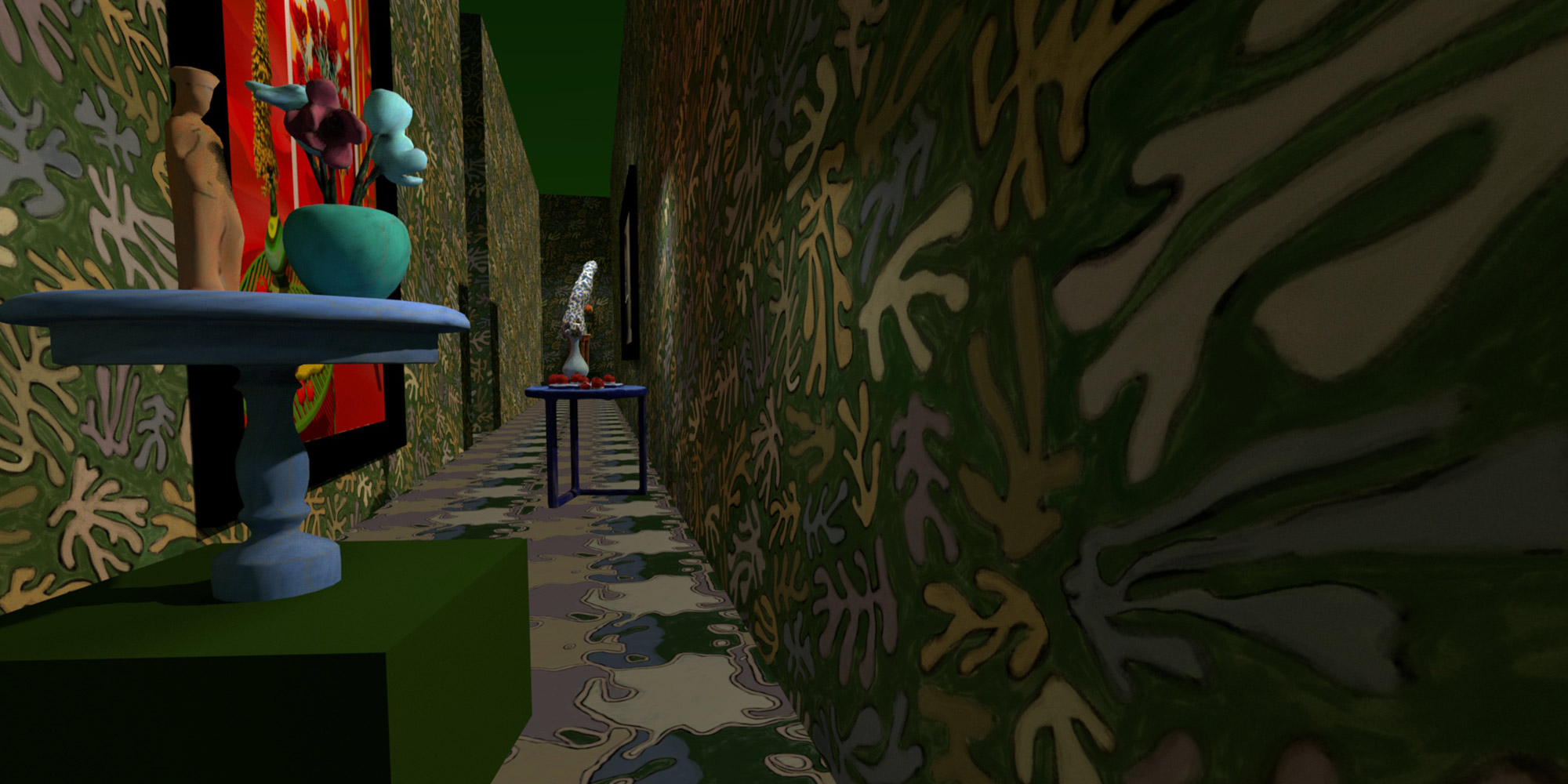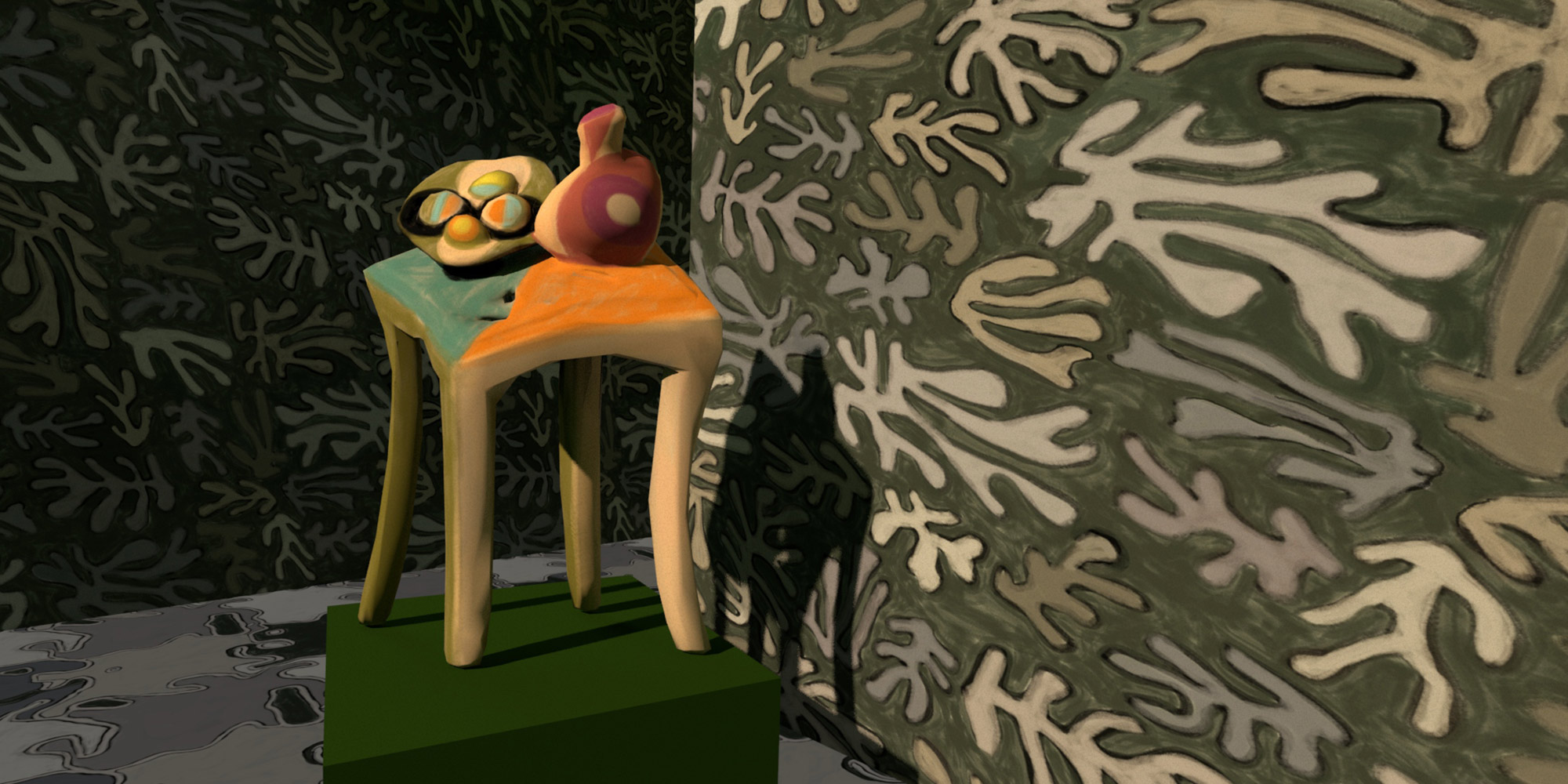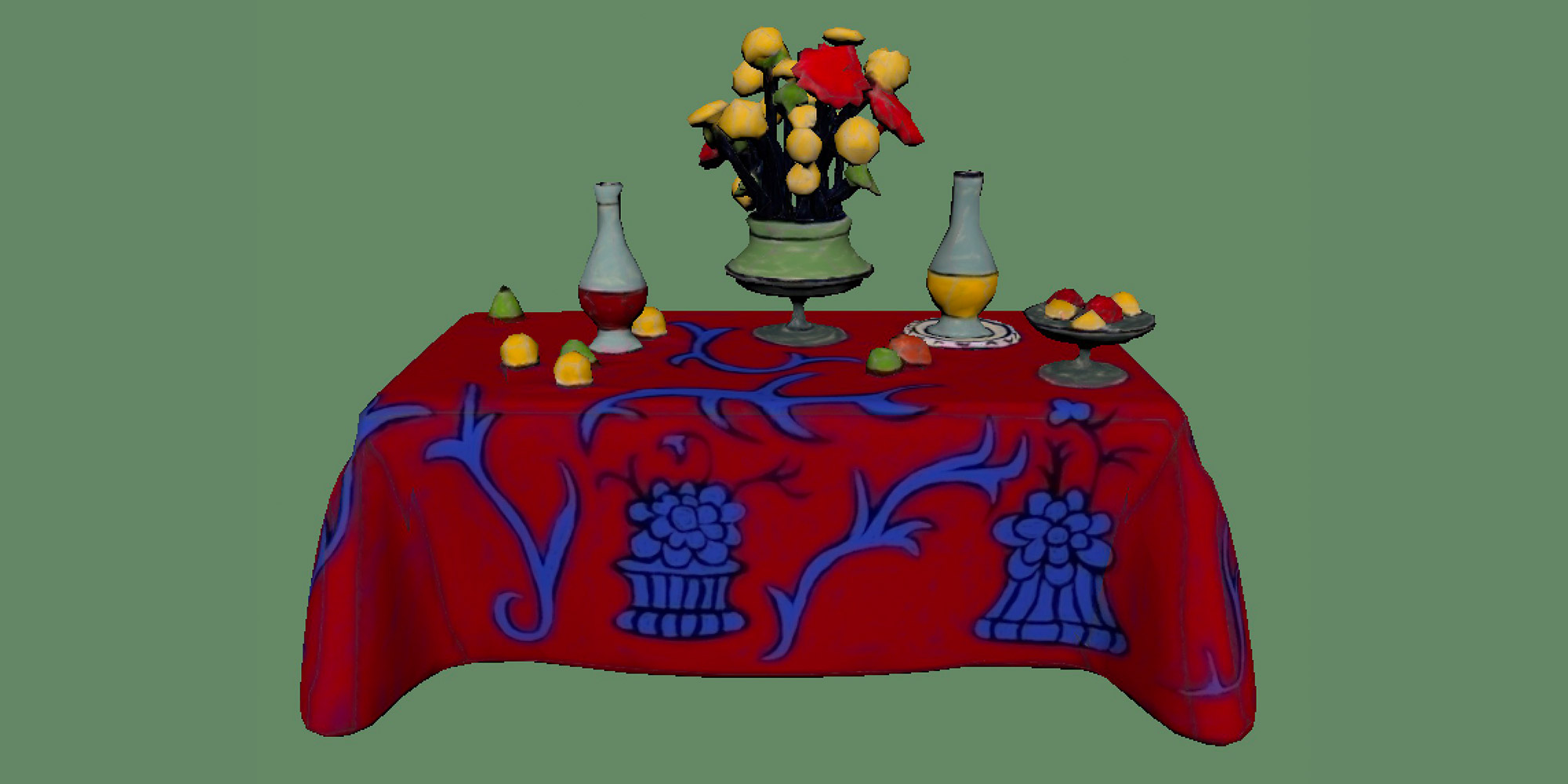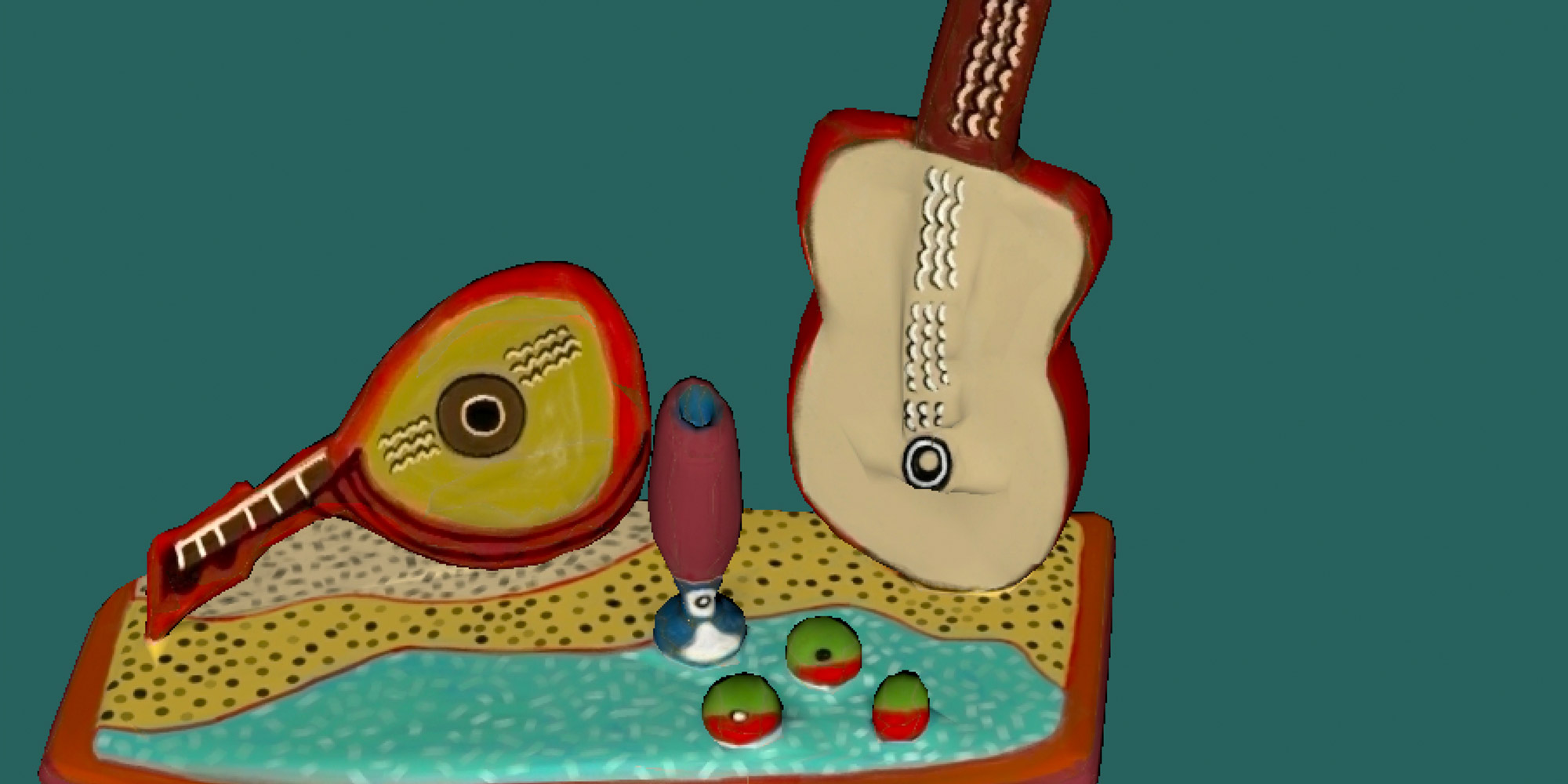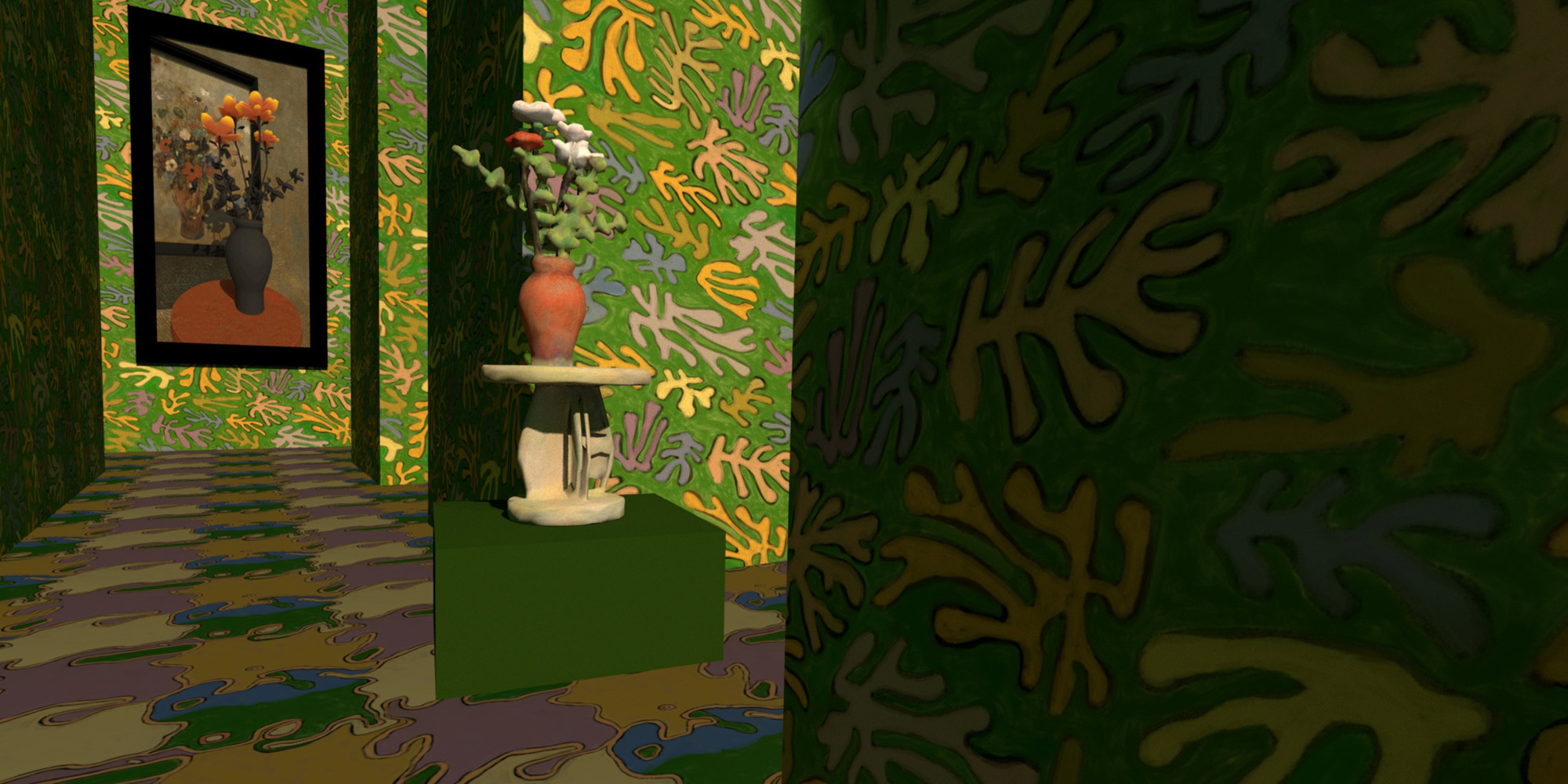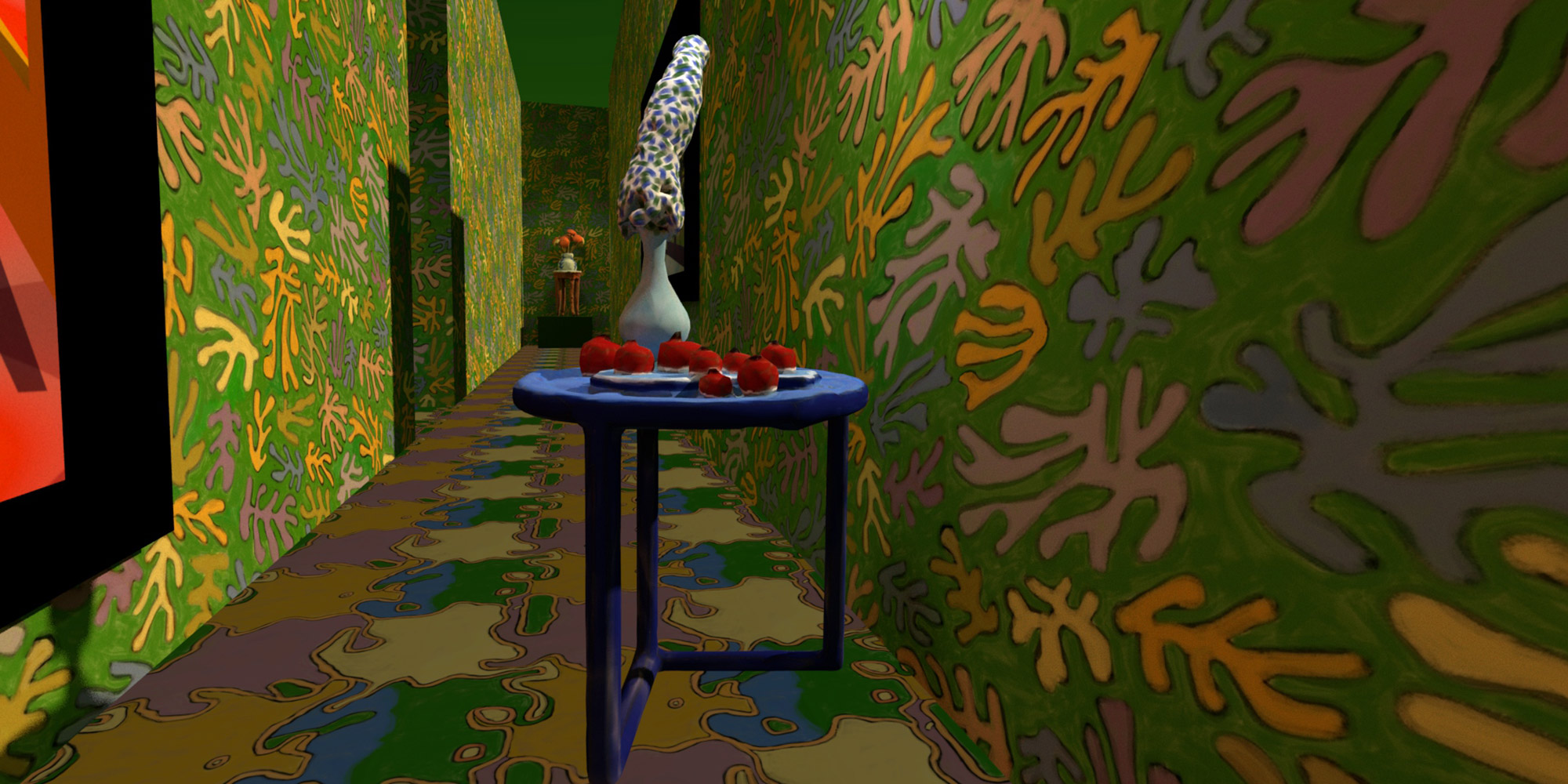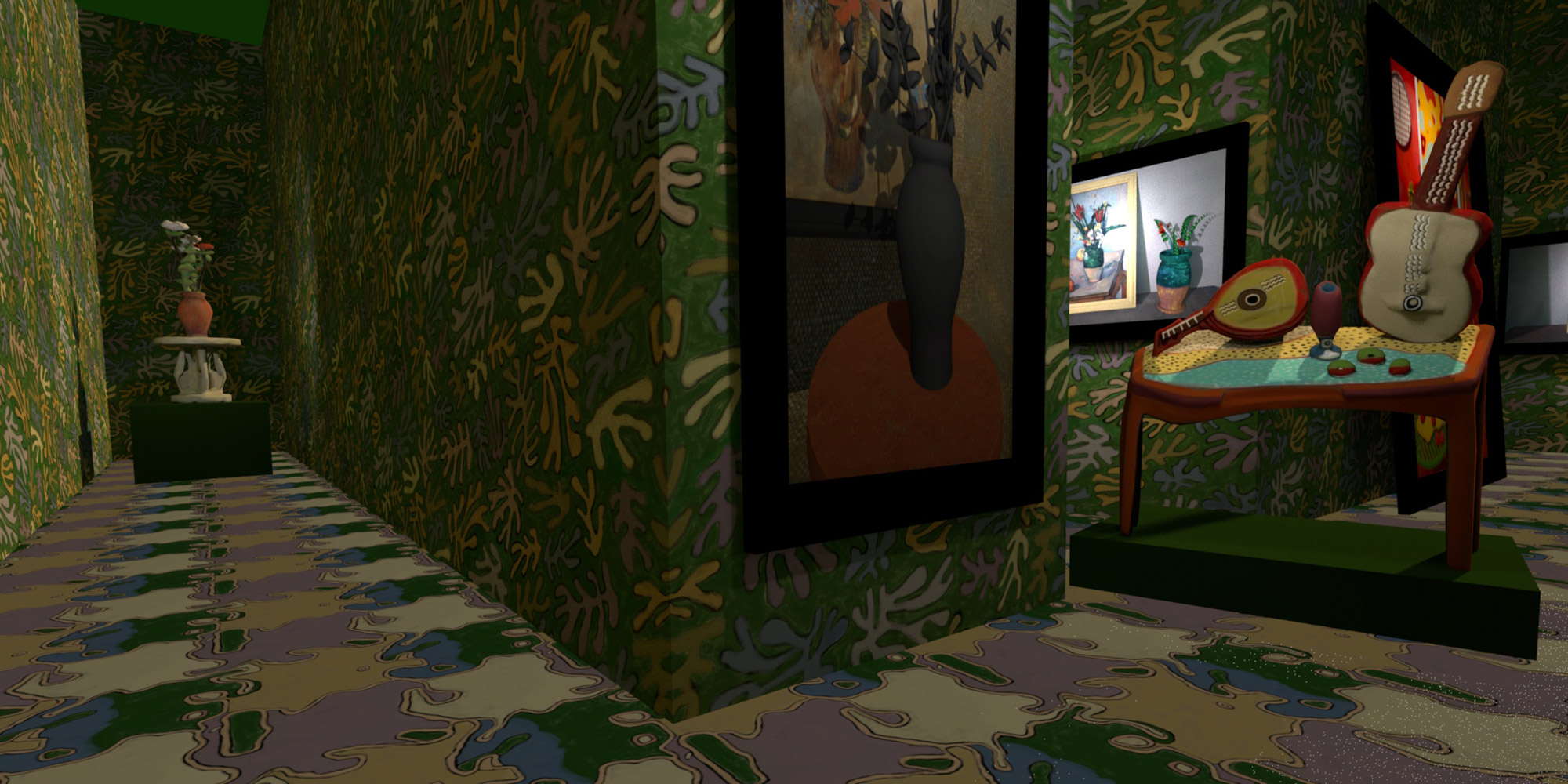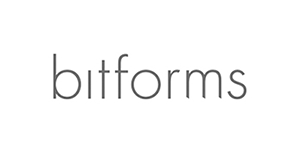The Ruins is an exhibition that implements still lifes to contemplate the canons of a patriarchal Western civilization: modernist paintings and manifestos of political utopias. Join Hart in an intimate video profile as she discusses the works as meditations on a world in crisis, speaking to an unstable present experienced through the possibility of simulation-technologies that use data to model the crystallization of past, future, and present into a perpetual now.
Claudia Hart’s The Ruins
The centerpiece of the exhibition is an audiovisual animation tracking through a claustrophobic game world. Music, composed by Edmund Campion, is informed by vocals and lyrics by Hart, based on texts expressing the ideologies of four failed Utopias: Thomas Jefferson on American liberty, the Bauhaus Manifesto by Walter Gropius, Fordlandia – Henry Ford’s failed suburban rubber plantation in the Amazon rainforest – and Jim Jones’s Open Door sermon. Campion has processed and mixed each voice, using them as instruments in a piece that serves as the soundtrack to both the animation and the exhibition itself.
In addition to playing through the gallery, this audiopiece is an important component of the central work that gives the exhibition its title – The Ruins. For this particular work, Hart has produced very low polygon models – poor copies or “images,” to borrow a term popularized by Hito Steryl. The models are of copyright-protected paintings by Matisse and Picasso, whose works, unlike those by the Impressionists, are positioned in the “modern” wings of art museums rather than in those of the preceding periods (“European Painting and Sculpture”). Hart has built a low-polygon game-style labyrinth to use as the setting for her models, covering its walls with animations that also infringe on copyright protections ―for it is copyright that also marks the beginning of Modernism, by responding to photography, the emerging technology of that era. Hart tracks this historical labyrinth, from which there seems to be no escape.
Also included in this exhibition is the series The Red Paintings, a set of three monumental animations. Expanding on copyright-protected twentieth century still-life painting from the School of Paris, Hart was inspired by the significant collection at the Art Institute of Chicago and her work there with the media art students at School of the Art Institute and its Chair of 19th and 20th Century Painting and Sculpture, the art historian Gloria Groom. In the post-digital context, Hart imports the compositional structures of The Red Paintings by Henri Matisse to propose a paradigm shift in painting practice, creating monumental animations at real-painting scale. Like Matisse, Hart has constructed animated images-within-images, as architectures open onto windows and doors that open onto simulated landscapes and rooms bedecked with animated paintings, carpets and wallpapers. Hart has here constructed digital, pictorial clockworks in which wheels-within-wheels turn, at different rates and temporal schemes, to mesmerize viewers and usher them into a state of contemplation.
On view at bitforms gallery from September 10–October 25.
Video
Project Credits / Acknowledgements
Design and support for Mozilla Hub by Matthew Gantt.
Music and software programming for the custom algorithmic sound engine by Edmund Campion, Director, Center for New Music and Audio Technologies, UC Berkeley. This piece utilizes the CNMAT “Resonators~” synthesis object designed by Adrian Freed.
Special thanks to Jeremy Wagner and CNMAT for support with sound installation.
Additional presentation support from NIIO and Barco.
bitforms gallery
Founded in 2001, bitforms gallery represents established, mid-career, and emerging artists critically engaged with new technologies. Spanning the rich history of media art through its current developments, the gallery’s program offers an incisive perspective on the fields of digital, internet, time-based, and new media art forms. The gallery supports and advocates for the collection of ephemeral, time-based, and digital artworks.
